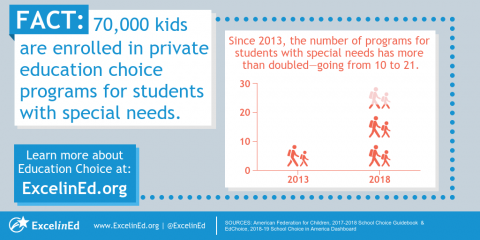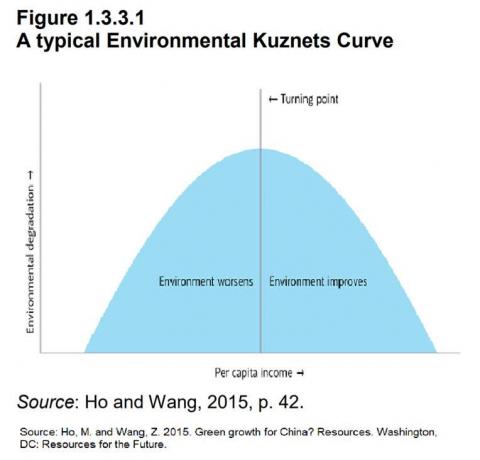


THE ADHD NERVOUS SYSTEM
1. Why We Don’t Function Well in a Linear World
"Tasks in the neurotypical world have a beginning, a middle, and an end. The ADHD world is curvilinear. We don’t know where and how to start, since we can’t find the beginning, so we jump into the middle of a task and work in all directions at once. | Keep reading Dr. Dodson's fascinating explanation →
2. Mornings. Are. Hell.
"My son takes his medication after breakfast, otherwise he'd have no appetite — but that means constant battles. I feel awful after dropping him off every single morning."
3. Doctors Aren't Trained to Recognize ADD in Women
"I saw the signs and took my mental health into my own hands. But millions of women are left to think they’re simply broken and incapable."
4. What's Stopping You from Starting?
So, you put things off. But what type of procrastinator are you? Use this flow chart to figure it out.
5. Learning to Keep My Word
"'I’ll fix it. I'll find that for you.' I don’t mean to break the promises I make to my children, but somehow life happens and things get left in the corner, forgotten...."
FREE WEBINAR ON 5/7
Time to Unplug?
David Anderson, Ph.D., explains how screen time impacts the ADHD brain and how to enforce practical guidelines.
FREE WEBINAR ON 5/14
After the Diagnosis
Learning you have ADHD can bring relief — and a lot of questions. Get the answers you need to take control.
Ducks Unlimited recognizes top fundraising chapters in Utah
RANCHO CORDOVA, CA – April 25, 2019 – Ducks Unlimited recently announced the top volunteer chapters across the nation honored in three categories: Chairman’s Roll of Honor, President’s Elite and President’s Roll of Honor.
The Chairman’s Roll of Honor designation is reserved for the chapters that raised between $250,000 and $999,999, while those that raised between $100,000 and $249,999 were named as President’s Elite chapters. Rounding out the three categories, President’s Roll of Honor chapters raised between $65,000 and $99,999.
“These fundraising events are the backbone of DU’s habitat conservation efforts, and the volunteers who make up these chapters are the force making a difference for North American waterfowl populations,” said DU President Rogers Hoyt Jr. “It takes a great deal of effort to achieve these prestigious levels, and these chapters deserve to be congratulated by every person who enjoys the outdoors.”
This year’s President’s Roll of Honor chapters from Utah include:
• SALT LAKE CITY, Salt Lake City
The chapters honored this year earned their spots on the nationally recognized lists out of more than 2,400 DU chapters nationwide that hosted more than 3,900 fundraising events. DU’s event fundraising system has become a model for other conservation organizations worldwide and has helped conserve more than 14 million acres of waterfowl habitat since 1937.
Some chapters will also have the distinction of being honored during DU’s 82nd National Convention in Waikoloa Village, Hawaii, May 28 – June 2, with many chapter representatives in attendance.
“The hard work and dedication from DU’s event system volunteers and staff drive the organization’s conservation mission from a financial, membership and policy strength perspective. DU chapters across the country are showing that the future of waterfowl populations and the wetlands that filter our water and protect us from flooding are important to them and to their communities,” Hoyt said. “The more money we raise, the more habitat we can conserve and the closer we are to preserving our waterfowl hunting heritage. I would like to personally thank our Chairman’s Elite chapters for their achievement and look forward to seeing them among our distinguished chapters next year.”
Ducks Unlimited Inc. is the world's largest nonprofit organization dedicated to conserving North America's continually disappearing waterfowl habitats. Established in 1937, Ducks Unlimited has conserved more than 14 million acres thanks to contributions from more than a million supporters across the continent. Guided by science and dedicated to program efficiency, DU works toward the vision of wetlands sufficient to fill the skies with waterfowl today, tomorrow and forever. For more information on our work, visit www.ducks.org.
+ Join new discussions in the ADDitude community!
1. "How can I express frustrations with my ADHD spouse in a constructive way?"
2. "Hoping to hear from any other adults who do well without ADHD medication...."
3. "I always put in so much work, only to be disappointed in the outcome."
======================
-----------------------------------------------------
CSC participants come from across the political spectrum.
One Time Publication Rights
Exclusive, your circulation area
419 words
April 26, 2019
Suggested headline: Trump right about prosperity and the environment
By Tom Harris
Despite the anger of activists about President Donald Trump’s official Earth Day statement, he was right to highlight the important role economic prosperity and a strong market economy play in protecting the environment. After all, without prosperity, we cannot afford to properly protect nature. The President explained:
“Environmental protection and economic prosperity go hand in hand. A strong market economy is essential to protecting our critical natural resources and fostering a legacy of conservation. “
In Climate Change Reconsidered II: Fossil Fuels” (CCR-II-Fossil Fuels), a 780-page report issued last year by the Nongovernmental International Panel on Climate Change (NIPCC), it is shown “how prosperity makes environmental protection a higher public goal and provides the resources needed to achieve it.” CCR-II-Fossil Fuels continues:
“Once basic demands for food, clothing, and shelter are met, people demand cleaner air, cleaner streams, more outdoor recreation, and the protection of wild lands. With higher incomes, citizens place higher priorities on environmental objectives.”
CCR-II-Fossil Fuels describes what economists call Environmental Kuznets Curves (EKCs) which show how environmental degradation rises with national per-capita income until a certain critical point is reached, after which the environment starts to improve.
For example, CCR-II-Fossil Fuels cite researchers Grossman and Krueger (1995) who:
“conducted an extensive literature review of air quality over time and around the world and found ambient air quality tended to deteriorate until average per-capita income reached about $6,000 to $8,000 per year (in 1985 dollars) and then began to sharply improve. Later research confirmed similar relationships for a wide range of countries and air quality, water quality, and other measures of environmental protection.”
Before the creation of EKCs, many well-informed people thought that wealthier countries damaged their environment more than poorer nations. The only way out of this dilemma was to de-industrialize and reduce incomes, they thought. But we know now that the exact opposite is true. While factors such as the strength of democratic institutions, levels of educational achievement, and income equality play a role, Trump was completely right to link prosperity with environmental protection.
And finally, CCR-II-Fossil Fuels demonstrates that the prosperity made possible by free markets creates the circumstances needed to better protect the environment. The report concludes:
“Without markets, a poorer and hungrier world would have little regard for the environment or the interests of future generations, being too busy meeting the more immediate needs of finding food and shelter.”
Bravo to President Trump to making Earth Day a time to remember what really matters for environmental protection—prosperity and free markets.
Tom Harris is Executive Director of the Ottawa, Canada-based International Climate Science Coalition and a policy advisor to The Heartland Institute.